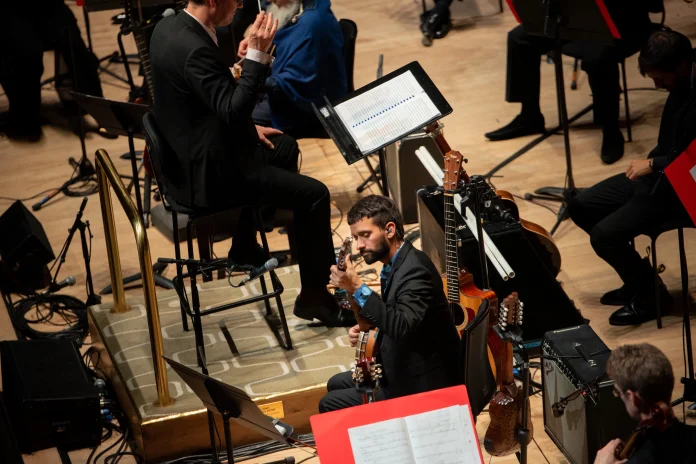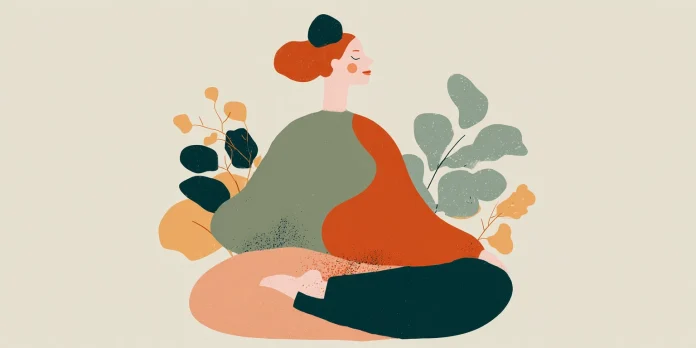Written by Malena Sanchez Moccero
Medically reviewed by Paula Alvarez (Psychologist, Dance-Movement Therapist, Emotional Intelligence Specialist & Applied Neuroscience in the Educational Field Specialist)
Recent studies show that women actively seek and maintain friendships, while men often struggle to do the same. Why do they find it difficult to form connections? Why do they often overlook their need for emotional support? And how can they cultivate meaningful friendships?
“My loneliness is killing me.” Might sound a little dramatic, but it’s not entirely wrong. Loneliness isn’t just a fleeting feeling; it’s a serious public health issue. Scientific evidence overwhelmingly supports the idea that friendships have a profound impact on both mental and physical well-being. People with strong social ties report higher life satisfaction, lower rates of depression, and even longer lifespans. Research indicates strong social connections reduce the risk of mortality from heart disease, chronic illnesses, and other health conditions. In contrast, persistent loneliness has been linked to higher stress levels, weakened immune systems, and an increased risk of cognitive decline.
In today’s world, male loneliness is emerging as a silent crisis. A recent Pew Research Center report found that while men and women in the United States experience loneliness at similar rates, they cope with it in different ways. Women are more likely to seek emotional support through friendships and social networks, while men often struggle to form and maintain deep, meaningful connections.
Richard Reeves, author of Of Boys and Men: Why the Modern Male Is Struggling, Why It Matters, and What to Do About It, refers to this phenomenon as a “friendship deficit.” He argues that many of the traditional spaces where men once built strong social bonds—such as religious institutions, community organizations, and even workplaces—have diminished in influence. At the same time, cultural expectations around masculinity discourage vulnerability and emotional openness, leaving many men without the deep, supportive friendships that could help them navigate life’s challenges.
Women are more likely to seek emotional support through friendships and social networks, while men often struggle to form and maintain deep, meaningful connections.
Beyond the loss of traditional social spaces, another major factor is stigma. Admitting to loneliness can feel like a confession of personal failure, particularly for men, who are often conditioned to equate self-sufficiency with strength. Studies suggest that people are frequently reluctant to acknowledge their lack of close friendships, even in anonymous surveys, because loneliness remains deeply stigmatized. This reluctance only perpetuates the problem, making it harder for men to seek support and build new connections.
Breaking the cycle of male loneliness requires a shift in how society views male friendships and emotional expression. Encouraging men to foster deeper relationships, challenging outdated notions of masculinity, and creating spaces where vulnerability is accepted rather than shunned are all essential steps toward addressing this growing issue.
The Male Friendship Deficit
Historically, a man’s sense of worth has been closely tied to his ability to provide for his family. However, in today’s world, many men experience increasing feelings of disconnection and isolation. According to a 2021 survey from the Survey Center on American Life, only 48% of men reported being satisfied with their friendships. Moreover, significantly fewer men than women felt they had received emotional support from friends.
While men and women report having at least one close friend at similar rates, the key difference lies in how often they engage with them. Women tend to maintain regular contact with friends through text messages, social media, or phone calls, whereas men communicate less frequently, leading to weaker emotional connections over time.
This isolation carries serious consequences. A study published in Nature found that a lack of social connections significantly increases the risk of premature death, reinforcing the idea that the absence of strong emotional bonds can have devastating effects on mental health and overall well-being.
Encouraging men to foster deeper relationships, challenging outdated notions of masculinity, and creating spaces where vulnerability is accepted rather than shunned are all essential steps toward addressing this growing issue.
Why It’s Difficult for Men to Make Friends
Forming and maintaining close friendships in adulthood is challenging—especially for men. Research shows that emotional disconnection often begins in adolescence and deepens over time. Yet human beings have an innate need for deep emotional relationships, which not only enhance mental health but also influence physical well-being. Boys are not born emotionally disconnected; rather, they learn to be over time. This learned disconnection shapes the way they form relationships throughout their lives. However, men who make an effort to cultivate friendships can combat loneliness and enhance their well-being.
Cultural Barriers and Masculine Stereotypes
Gender stereotypes play a crucial role in the lack of meaningful male friendships. For generations, masculinity has been associated with self-sufficiency, emotional toughness, and independence. This has reinforced the mistaken belief that vulnerability is a feminine trait—and, therefore, a weakness.
Though these stereotypes have weakened, social pressures still discourage emotional openness in men. Society has long classified traits like strength and stoicism as masculine, while labeling emotional openness and sensitivity as feminine. This rigid division not only hinders men’s ability to form deep connections but also contributes to loneliness, emotional repression, and even increased aggression.
The absence of strong emotional bonds can have devastating effects on mental health and overall well-being.
In Deep Secrets: Boys’ Friendships and the Crisis of Connection, psychologist Niobe Way challenges the notion that boys are emotionally illiterate or uninterested in close friendships. Through hundreds of interviews with adolescent boys, she reveals that young males often form deeply intimate bonds—only to see them erode as they grow older. She describes how, as boys transition into adulthood, they begin to distrust emotional closeness, fearing that it conflicts with societal expectations of masculinity. As a result, they lose these friendships and, in many cases, experience isolation and loneliness.
These findings are particularly concerning given what we now understand about the links between friendships, overall health, and even lifespan. Strong social connections not only improve mental well-being but also reduce the risk of chronic illness and premature death. Addressing the stigma around male friendships and encouraging emotional openness is not just a matter of personal happiness—it’s a public health issue.
The Impact of Male Loneliness on Romantic Relationships
The lack of strong male friendships often leads men to rely primarily on their romantic partners for emotional support, which can create its own challenges. While this may seem like a solution, it can actually place an excessive burden on the relationship. Relying solely on a romantic partner for emotional needs can create pressure, leading to feelings of emotional exhaustion, frustration, or imbalance.
Experts emphasize the importance of a diverse social network, as different relationships offer unique perspectives and coping strategies. Friends, family members, and even professional counselors can provide support that a romantic partner alone may not be able to offer. In many heterosexual couples, women encourage their male partners to seek emotional support from other men, recognizing the value of male friendships. However, some men hesitate to do so, perceiving it as a sign of weakness or even a betrayal of traditional masculine norms. Breaking this pattern requires a shift in mindset—one that embraces friendship as a vital pillar of emotional well-being rather than an optional luxury.
Young males often form deeply intimate bonds, only to see them erode as they grow older. As boys transition into adulthood, they begin to distrust emotional closeness, fearing that it conflicts with societal expectations of masculinity.
How to Foster Male Friendships
While changing ingrained social patterns is challenging, there are practical steps men can take to build and strengthen meaningful friendships:
1. Listen and ask genuine questions
Showing interest in others’ lives, asking about their experiences, thoughts, and feelings, helps create trust and reciprocity.
2. Move beyond superficial conversations
Rather than sticking to surface-level topics, try asking deeper questions like “What’s something that excites you lately?” or “What has been challenging for you recently?”. These foster vulnerability and help build stronger bonds.
3. Engage in shared activities
Many men find it easier to form friendships through activities rather than direct emotional conversations. Joining a sports team, going to the gym, participating in hobby groups, or working on community projects can provide natural opportunities for connection.
4. Prioritize consistency and commitment
Like any relationship, friendships require effort. Regularly checking in, planning meet-ups, and making time for social interaction are essential for maintaining strong connections.
5. Join social groups or clubs
Whether it’s a book club, hiking group, or local volunteer organization, joining structured activities creates opportunities to meet like-minded individuals and develop friendships organically.
6. Practice vulnerability
Building deeper friendships requires a willingness to be open. This doesn’t mean sharing everything at once, but small acts of honesty—like admitting struggles or discussing personal experiences—can lead to stronger emotional connections.
7. Reconnect with old friends
Sometimes, rekindling past friendships is easier than starting from scratch. A simple message or call can reignite meaningful relationships and provide an opportunity to rebuild lost connections.
8. Volunteer or mentor
Engaging in mentorship or community service not only benefits others but also fosters camaraderie and shared purpose, leading to deeper bonds.
9. Attend networking or social events
While networking is often career-focused, it can also serve as a way to meet new people and develop friendships that extend beyond professional settings.
10. Create a routine for social interaction
Scheduling regular coffee meet-ups, game nights, or workout sessions ensures that friendships remain an active part of life, rather than something that fades into the background.
Looking Ahead: Raising Emotionally Connected Men
While individual efforts are crucial, lasting change requires a cultural shift—starting with how we raise future generations. The most effective way to combat male loneliness is to nurture boys who feel comfortable expressing their emotions, seeking support, and building strong, meaningful friendships. By teaching children that vulnerability is a strength rather than a weakness, we can help dismantle the stereotypes that have long isolated men emotionally.
Parents, educators, and mentors play a key role in shaping this future. Fostering children’s social and emotional well-being should be as important as their academic achievement—because in reality, the two are deeply interconnected. Research shows that students who develop strong social and emotional skills not only perform better academically but also demonstrate greater resilience in the face of life’s challenges. Recognizing this is the first step toward a healthier, more emotionally connected society.
Ultimately, fostering male friendships is about more than improving individual lives—it has a ripple effect on society as a whole. When men have strong, supportive relationships, they are happier, healthier, and better equipped to navigate life’s complexities. Loneliness is not an unavoidable fate; with intentionality and effort, meaningful connections can be built, providing support and companionship throughout every stage of life.






